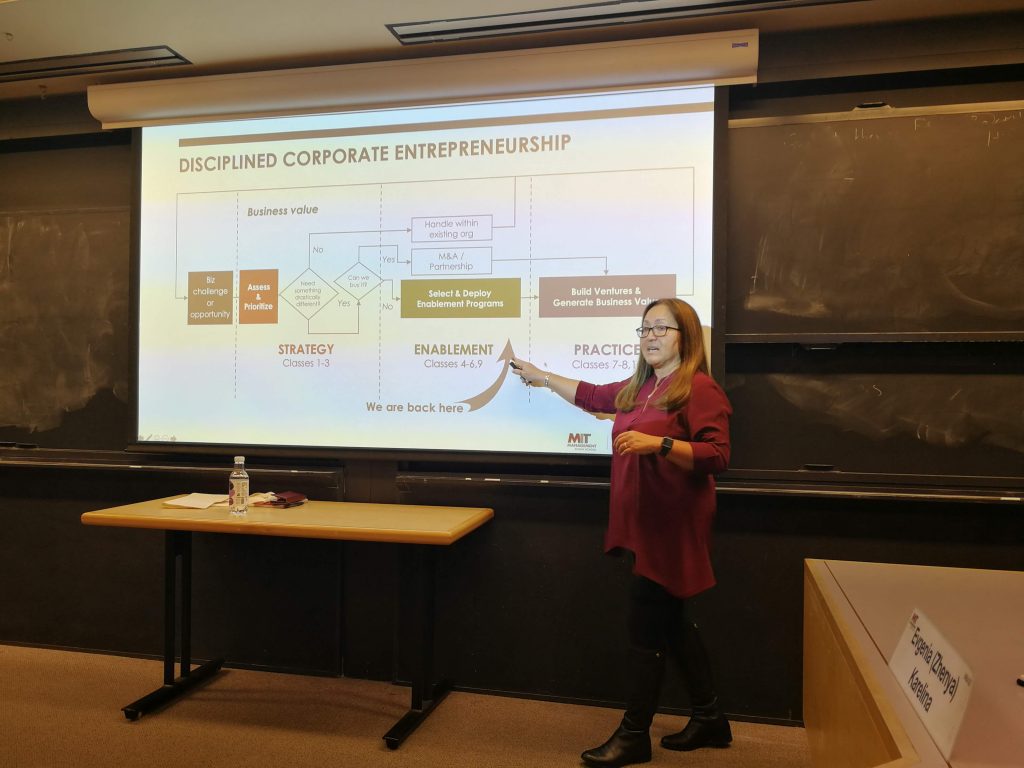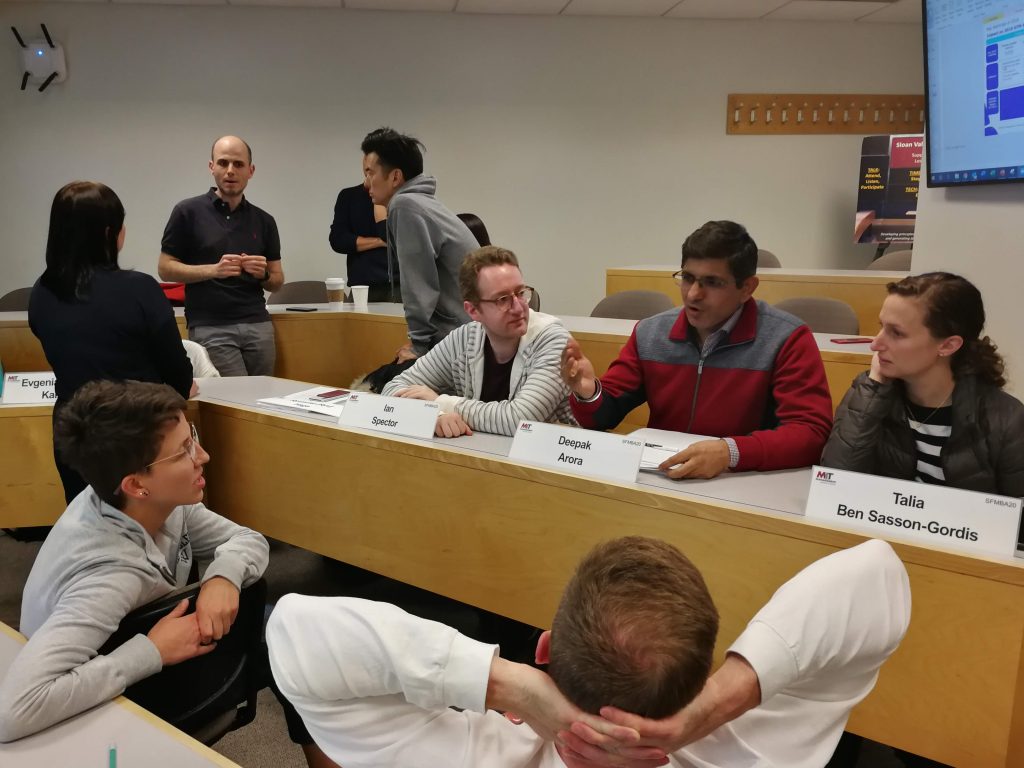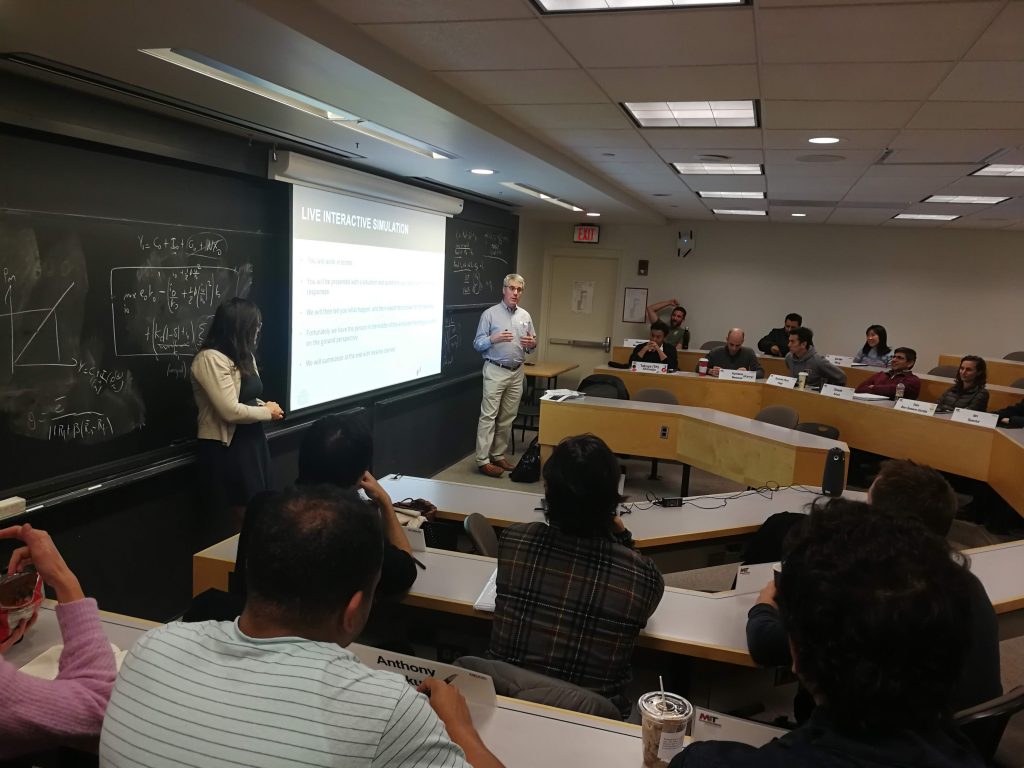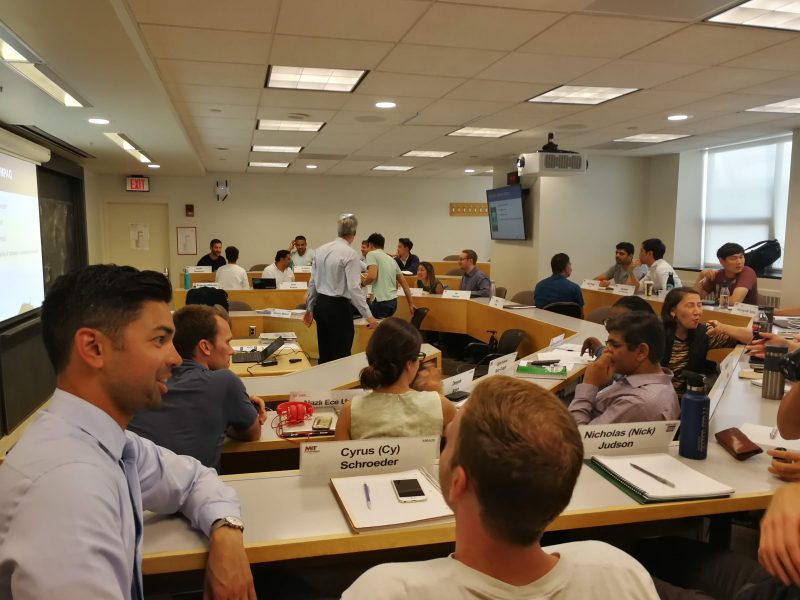OVERVIEW
This is a course for students who want to learn how existing organizations can be more entrepreneurial and apply those learnings in a team project setting.
Given the scope and complexity of challenges society faces, and the rapid pace in which they continue to develop, we need existing organizations to leverage their existing assets and to be material contributors of new ideas and solutions.
- What can corporations learn from startups – and how might they set up their organizations to get the best of both worlds?
- How can existing organizations develop and support internal entrepreneurs?
This course will address the practical steps that can be taken for existing organizations (corporations, non-profits, government, and others) to become more entrepreneurial. A systematic approach will be utilized integrating lectures, exercises, guest speakers, and a semester-long action learning project.
- In person + Hyflex (for EMBAs)
- Instructors: Susan Neal, Yu-Ting Kao, Sue Siegel, and Devon Sherman Daley
- Time: Wednesdays, 4-7pm
- Prereq(s)/Restr(s): Students should be familiar with “Disciplined Entrepreneurship: 24 Steps to a Successful Startup” by Bill Aulet
- Admission is by application only.
- Deadline to apply is Thursday, February 1st.



Testimonials

““I love your course! It is my favorite course. I enjoy doing readings before the class and listening to the professors’ experience in the field in the class. What I am learning here perfectly complements my career goals of driving impactful innovations for established companies. Thank you for providing me this opportunity!”
– Nazli Usta, IDM

“I really appreciate the real-world case studies and fireside chats with corporate entrepreneurs as a showcase of how innovation takes place in organizations, what challenges present themselves, how leaders think about those challenges and generate solutions.”
– John Albrechtsen, Sloan Fellow MBA

“The case studies with practicing corporate entrepreneurs were very simulating, and the class really engaged in helping the speakers solve their problems. Also: Thank you for reacting so quickly to feedback, this is a sign of real agility and corporate entrepreneurship!”
– Mae Tan, Sloan Fellow MBA
Corporate Entrepreneurship Faculty

Susan Neal

Yu-Ting Kao

Sue Siegel




Follow